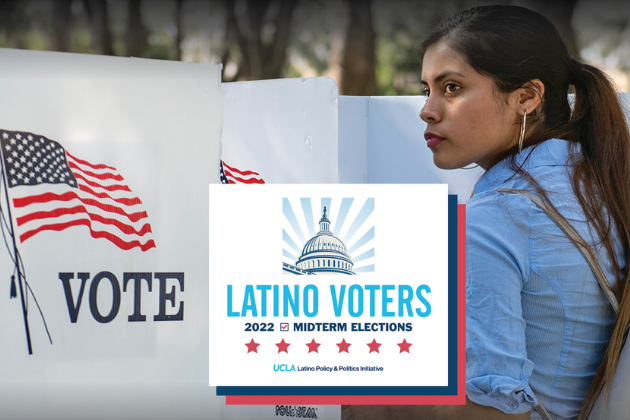FOR IMMEDIATE RELEASE
July 18, 2022
Latino Voters Will Play Pivotal Role in 2022 U.S. Senate Races
Support for Democrat candidates remains strong among Latinos, but swing voters could prove the difference in some races, UCLA report shows
The Latino electorate played a decisive role in key U.S. Senate races in 2020 and will again be crucial in determining outcomes in the 2022 midterm elections, according to a report published today by the UCLA Latino Policy and Politics Institute.
The report analyzes the choices of Latinos in 2020 Senate elections in five states where Latino voters were pivotal either because of their large numbers or the part they played in close races: Arizona, Colorado, Georgia, New Mexico and Texas. And with an eye toward 2022’s most contested races, the authors spotlight the frequency with which Latinos selected one party’s candidate for president and another’s for the Senate.
In all these states, the authors found, Latino voters supported Democratic Senate candidates by wide margins in 2020. In Arizona, Colorado and Georgia, they voted for Democratic Senate candidates over Republican candidates by a 3-to-1 margin, and in New Mexico and Texas by a 2-to-1 margin.
Yet despite this overwhelming support for Democratic Senate candidates, a considerable number of Latino voters — between 2% and 10%, depending on the state — split their ballots between parties when choosing Senate and presidential candidates in 2020. These swing voters will likely be a critical segment in this year’s midterm elections, particularly in states like Arizona and Georgia where Senate races are currently considered toss-ups, the authors said.
Importantly, determining the future balance of power in the currently divided Senate and elsewhere will depend heavily on Latino voter turnout efforts, especially continued investments by all political parties in direct voter engagement and mobilizations by political campaigns, said the institute’s founding director, Sonja Diaz.
“Voting patterns show the critical role Latinos play in pivotal midterm elections, but these votes must be earned,” Diaz said. “Campaigns for House and Senate seats should ensure they are reaching the Latino electorate by addressing the needs of this community and utilizing tailored outreach techniques proven to result in voter mobilization.”
Republican inroads with Latino voters: A larger trend?
The authors’ analysis shows that Democratic candidates for the Senate outperformed Democratic presidential candidate Joe Biden with Latino voters in 2020 in four of the five states analyzed, excluding Texas. Georgia’s hotly contested 2021 Senate runoff elections saw the largest gap, with Democratic Senate candidates outpacing Biden among Latinos by more than 10 percentage points. The report also shows that in Arizona, Colorado and New Mexico, between 2% and 3% of Latinos voted for Donald Trump while voting for the Democratic Senate candidate.
Overall, Trump improved his margin with Latino voters between the 2016 and 2020 presidential elections, but the data shows no evidence that there was a generalized drop in Latino backing for Democratic candidates in 2020. The authors noted that Trump’s biggest gains were limited regionally to areas of Florida and Texas and emphasized the current report’s findings of strong support among Latinos for Democratic Senate candidates.
Still, Latino swing voters could be a decisive factor in some close Senate races, they noted, particularly with the continued rapid growth of the Latino electorate. Between 2016 and 2020, the number of Latino voters who cast ballots increased by almost 31%, nearly double the nationwide 15.9% growth in ballots cast between those four years, said Rodrigo Dominguez-Villegas, the institute’s research director and one of the report’s authors.
“Our research continues to show the growing power of Latino voters,” Dominguez-Villegas said. “With a million Latinos coming of voting age every year, the Latino electorate will play a pivotal role in the 2022 midterms and beyond.”
MEDIA CONTACT
Kacey Bonner
###
ABOUT UCLA LATINO POLICY AND POLITICS INSTITUTE
The UCLA Latino Policy & Politics Institute addresses the most critical domestic policy challenges facing Latinos and other communities of color through research, advocacy, mobilization, and leadership development to expand genuine opportunity for all Americans.

